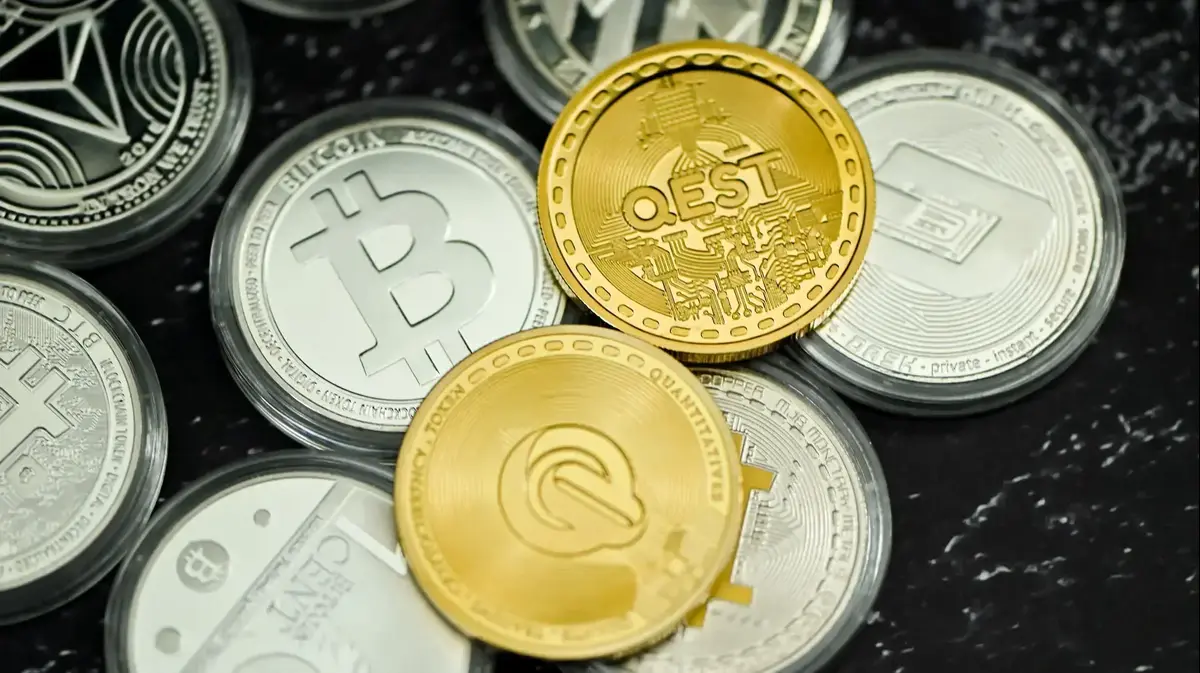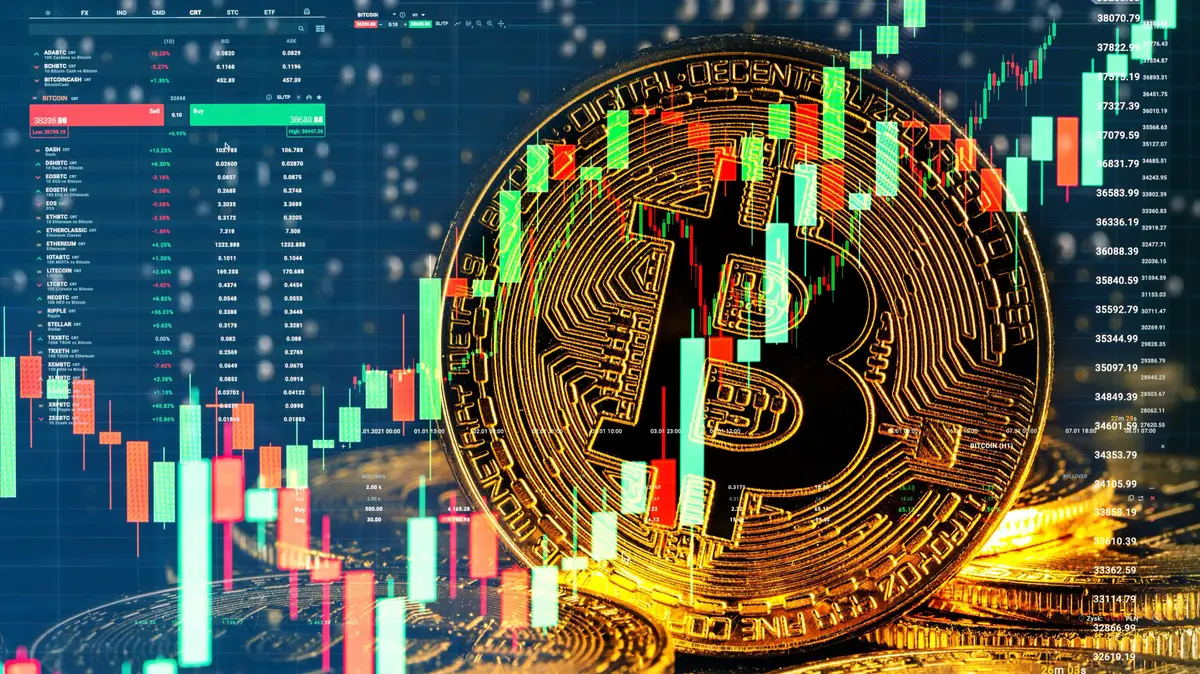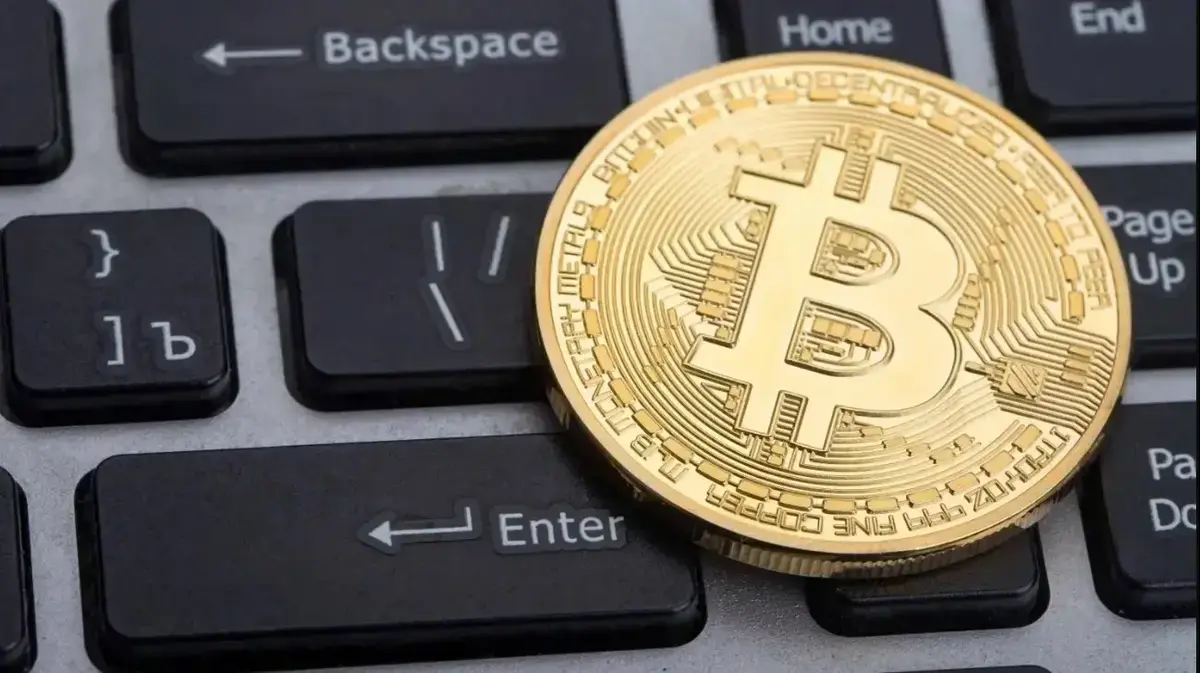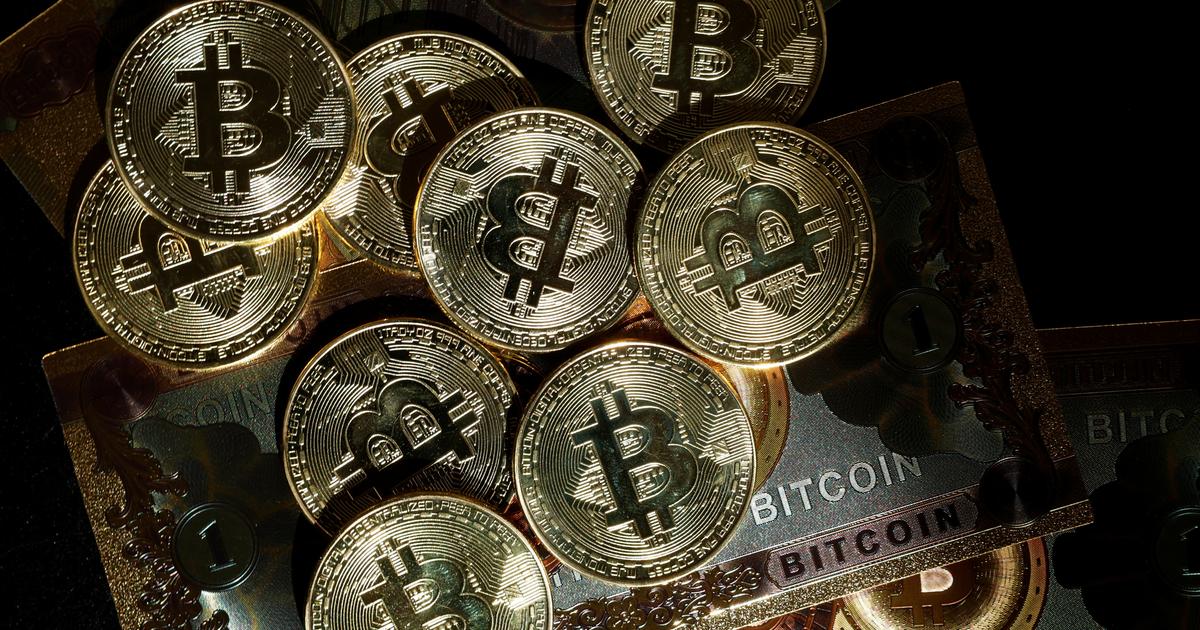Enlarge image
El Salvador's tech evangelist: President Nayib Bukele has big visions
Photo: JOSE CABEZAS / REUTERS
When the paths in the mountains around Suchitoto become overgrown, Erick Castro smashes his way with his machete.
The young Salvadoran works on his family's corn fields and as a tour guide, his mobile phone often has no network up here in the mountains - and yet the 28-year-old farmer is a bitcoin fan.
In his village of El Sitio Zapopan, where around 130 families live, he cannot pay digitally anywhere;
his neighbors swear by cash and hoard their wealth under their pillows rather than in the bank.
But in the next small town, Suchitoto, at least a handful of shops and restaurants accept Bitcoin as a means of payment.
Most recently, Castro bought bread and paid with the state-owned Chivo app - 0.00010772 bitcoin, the equivalent of $5.45.
"I believe Bitcoin is the future," says Castro.
»But it will probably be another ten years before everyone here pays digitally.« He is also proud that El Salvador is now making headlines as a tech laboratory instead of gangs and violence.
So far, his country has been known primarily for the fact that many want to leave it because they see no future here. Around 6.5 million people live in the smallest Central American country, up to three million Salvadorans abroad, mainly in the USA. But ever since the 40-year-old hipster president Nayib Bukele rushed to transform the country into a bitcoin state, there has been a new kind of spirit of optimism – at least among those who don’t consider Bukele’s bet on the volatile cryptocurrency to be dangerous megalomania.
The president is marketing the plans as a way out of poverty: El Salvador is to be transformed into a center for innovation and tourism, with thousands of new jobs.
According to Bukele, Bitcoin should also enable financial inclusion; according to the World Bank, only 30 percent of citizens have a bank account so far.
However, critics see the vision primarily as a gigantic marketing machine for the president – and as an attempt to fill the empty state coffers.
Bukele presents himself as a tech evangelist who breaks with traditional political rules: he appears in a baseball cap and leather jacket, uses social networks as a political marketing machine, describes himself on Twitter as the "CEO of El Salvador" and governs by Silicon -Valley style – with rapid reforms, ignoring skeptical voices: He
attacked critical media or had soldiers march in parliament to push through the budget for security reform.
In El Salvador, however, he received approval ratings of 85 percent, and the international crypto community also celebrated him as a pioneer.
About six months ago, Bukele announced via video at the "Bitcoin 2021 Conference" in Miami that Bitcoin would be introduced as legal tender.
Just a few days later, he pushed a law through parliament, in which his party holds the majority.
As of September 2021, traders are now required to accept cryptocurrency alongside the US dollar if they are technically able to do so.
At the foot of the Conchagua volcano in the southwest of the country, Bitcoin City is also to be built in 2022, a huge technology center that Bukele wants to finance in part with crypto government bonds. According to the president, the state will provide the infrastructure and investors should build offices, apartments and shopping centers. The energy for the operation is to be obtained from the volcano; El Salvador has 170 volcanoes and hopes to be able to use geothermal energy to mine its own bitcoins on a large scale in the future.
In December 2021, the volcano that is supposed to spew Bitcoin is still untouched in the blazing sun. Although Nelson Rosa has heard of Bitcoin City, from his little house on the Conchagua he has only seen dense forests, a few corn fields and the Gulf of Fonseca, from which islands and the silhouettes of the neighboring countries Honduras and Nicaragua rise. Only the narrow road that winds its way up to the summit and past Rosa's house has recently been repaved.
He still considers Bitcoin City to be “a phantom” – and a project that is aimed at foreign entrepreneurs anyway, not at “normal people” like him. The 31-year-old and his wife have mobile phones and the internet, but they are suspicious of the cryptocurrency. "Bitcoin is for those who understand how it works," believes Rosa, who works as a security guard. So far, he hasn't even downloaded the Chivo app to secure the starting credit of around $30 that the President wants to use to get his people excited about Bitcoin.
At information stands in many cities, helpers help less tech-savvy citizens to register with Chivo.
Around 200 blue Chivo machines have been set up around the country where Salvadorans can buy digital credit or exchange bitcoin for dollars, guarded by police or military officers with assault rifles.
60 ATMs have also been installed in US cities to facilitate fee-free money transfers between families and expatriate loved ones.
Remittances make up more than twenty percent of the gross domestic product in El Salvador - so far, service providers have collected around ten percent fees.
According to the US company Athenas, which helped develop Chivo, the app has around four million users.
But many apparently only spent the Bitcoin welcome credit.
"Most withdraw $30 and that's it," says a police officer who guards Chivo ATMs, saying she bought drugs herself.
Many told SPIEGEL that they had invested the credit in groceries, restaurant visits or clothing - and have not used the app since then.
According to sellers, only a few Salvadorans actually pay with crypto wallets on a daily basis, although the supermarket group Súper Selectos, US chains such as Starbucks and Subway, some restaurants, bars, shops and even small market stalls accept Bitcoin.
"It's not as if an entire people was bitcoinized and in two years they will all only be using Bitcoin," says Bitcoin expert Jeff Gallas, founder of the Berlin Bitcoin Lightning start-up fulmo.
Nevertheless, he thinks the first serve was successful - "if you consider how short the time was".
Now the government must show whether it can keep all its promises and fix the Chivo bugs.
Vulnerabilities in the software enabled fraudsters to collect the credit balances of hundreds of citizens, and some transfers also do not work.
"El Salvador has a certain lead now," says Gallas. "But other countries can see what isn't working so well and then follow suit." Like many Bitcoin enthusiasts, he first had to research where El Salvador is located - then he organized a short-term delegation trip for Berlin's Bitcoin scene.
In Berlín, Salvador, the group visited the La Geo geothermal power plant; there is a mining container in which bitcoins are already being mined using volcanic energy. So far, however, the quantities are only sufficient for a marketing coup, and Gallas does not yet see a lucrative new business area here. "Three to ten years would be the time horizon to bring this to a level that is of interest to anyone at all," he believes. It is also unclear whether the Conchagua volcano is suitable for large-scale mining. The country currently covers around a quarter of its energy needs with geothermal energy.
Only in El Zonte is the Bitcoin vision already part of everyday life on every street corner.
The beach village with 3,000 inhabitants looks like a mini Disneyland for crypto fans: Bitcoin signs are emblazoned on kiosks, restaurants, hotels, surf shops and cafés, and even the garbage cans are painted with a yellow “B”.
The Bitcoin Beach initiative has long sworn the village to use cryptocurrency.
Three surfer friends from El Zonte have been running social projects here for around 13 years, teaching young people how to surf, English or IT - to give them more opportunities than the fishermen's sons themselves had.
An American who moved to El Zonte got them excited about Bitcoin, an anonymous donor supported crypto adoption with a large sum, and a start-up programmed the virtual wallet for the village.
During the pandemic, villagers received credit on their cellphones in lieu of aid packages, motivating more and more shops to accept bitcoin.
»It made our whole life easier«,
says 21-year-old Mabel Alvarez, who works for the social project.
She receives her salary in Bitcoin;
she pays her electricity bill, but also her tuition fees digitally, transfers credit to her mother for shopping – and tries to save.
She believes that one of the biggest advantages of the Bitcoin revolution is that young people and adults who previously had no accounts could save assets.
El Zonte now benefits from Bukele's campaign –
the village used to be an insider tip for surfers, today many Bitcoin tourists flock here.
But not everyone here is Bitcoin fans.
At the Pupuseria, Mama Blanca's sales stand, small flatbreads are sizzling on a grill, the sign with the QR code is still stuck next to it - but Blanca angrily waves it away.
"Bitcoin is not for me," says the 55-year-old.
At the beginning of the pandemic, she started accepting crypto payments;
she made good money with her delivery service.
Then the course collapsed.
"I lost $800," she says.
Losing your wealth when prices fluctuate is a fear shared by many poorer Salvadorans in particular - they cannot afford to put a lot of money away;
earning just a few dollars a day sees even small changes in value as a big loss.
Since the Bitcoin launch, protests have been taking place in the capital San Salvador time and again.
Critics also fear that the President will gamble away taxpayers' money with his Bitcoin investments - it is also unclear where the money comes from. "The government is not transparent about its sources of funding or how the funds are used," says Marjorie Chorro de Trigueros, director of the legal department at the Salvadoran think tank Fusades.
The small country is already completely in debt, but according to the newspaper El Diario de Hoy, state funds of around 70 million dollars have flowed into the purchase of 1370 bitcoins so far. "States shouldn't gamble with public money," says economist Christian Ambrosius from Freie Universität Berlin, who specializes in Latin America. According to Ambrosius, this could go well as long as the Bitcoin trend is upwards. "But no one knows how long that will be."
The planned Bitcoin government bonds are also a bet on rising prices.
Ambrosius sees it as an attempt to »open up alternative sources of finance in an acute emergency«.
Half of the volume of initially one billion dollars is to flow into the construction of Bitcoin City - the other half will be invested in bitcoins.
Investors should receive a 6.5 percent annual return - and after five years a dividend if the value of the bitcoin increases.
At least in the short term, Bukele's plan to raise funds in the crypto scene could work.
"There are many estimates that the bond will be sold out relatively quickly," says Frankfurt bitcoin expert Veronika Kütt.
"If that's really the case, I see a good chance that a small town will be built."
Bitcoin experts like Jeff Gallas or crypto hacker Pavol Lupták doubt that many tech nomads actually want to settle in Bitcoin City – beyond shell companies.
Even if the city of the future were to be built at the foot of the Conchagua volcano, it is questionable whether the general public would benefit from it.
This contribution is part of the Global Society project
Expand areaWhat is the Global Society project?
Under the title »Global Society«, reporters from
Asia, Africa, Latin America and Europe
report on injustices in a globalized world, socio-political challenges and sustainable development.
The reports, analyses, photo series, videos and podcasts appear in a separate section in SPIEGEL's international department.
The project is long-term and is supported by the Bill & Melinda Gates Foundation (BMGF).
A detailed FAQ with questions and answers about the project can be found here.
AreaWhat does the funding look like in concrete terms?open
The Bill & Melinda Gates Foundation (BMGF) has been supporting the project since 2019 for an initial period of three years with a total of around 2.3 million euros - around 760,000 euros per year.
In 2021, the project was extended by almost three and a half years until spring 2025 under the same conditions.
AreaIs the journalistic content independent of the foundation?open
Yes.
The editorial content is created without the influence of the Gates Foundation.
AreaDo other media also have similar projects?open
Yes.
With the support of the Gates Foundation, major European media outlets such as The Guardian and El País have set up similar sections on their news sites with Global Development and Planeta Futuro respectively.
Did SPIEGEL already have similar projects? open
In recent years, DER SPIEGEL has already implemented two projects with the European Journalism Center (EJC) and the support of the Bill & Melinda Gates Foundation: the "OverMorgen Expedition" on global sustainability goals and the journalistic refugee project "The New Arrivals" as part of this several award-winning multimedia reports on the topics of migration and flight have been created.
Expand areaWhere can I find all publications on the Global Society?
The pieces can be found at SPIEGEL on the Global Society topic page.









